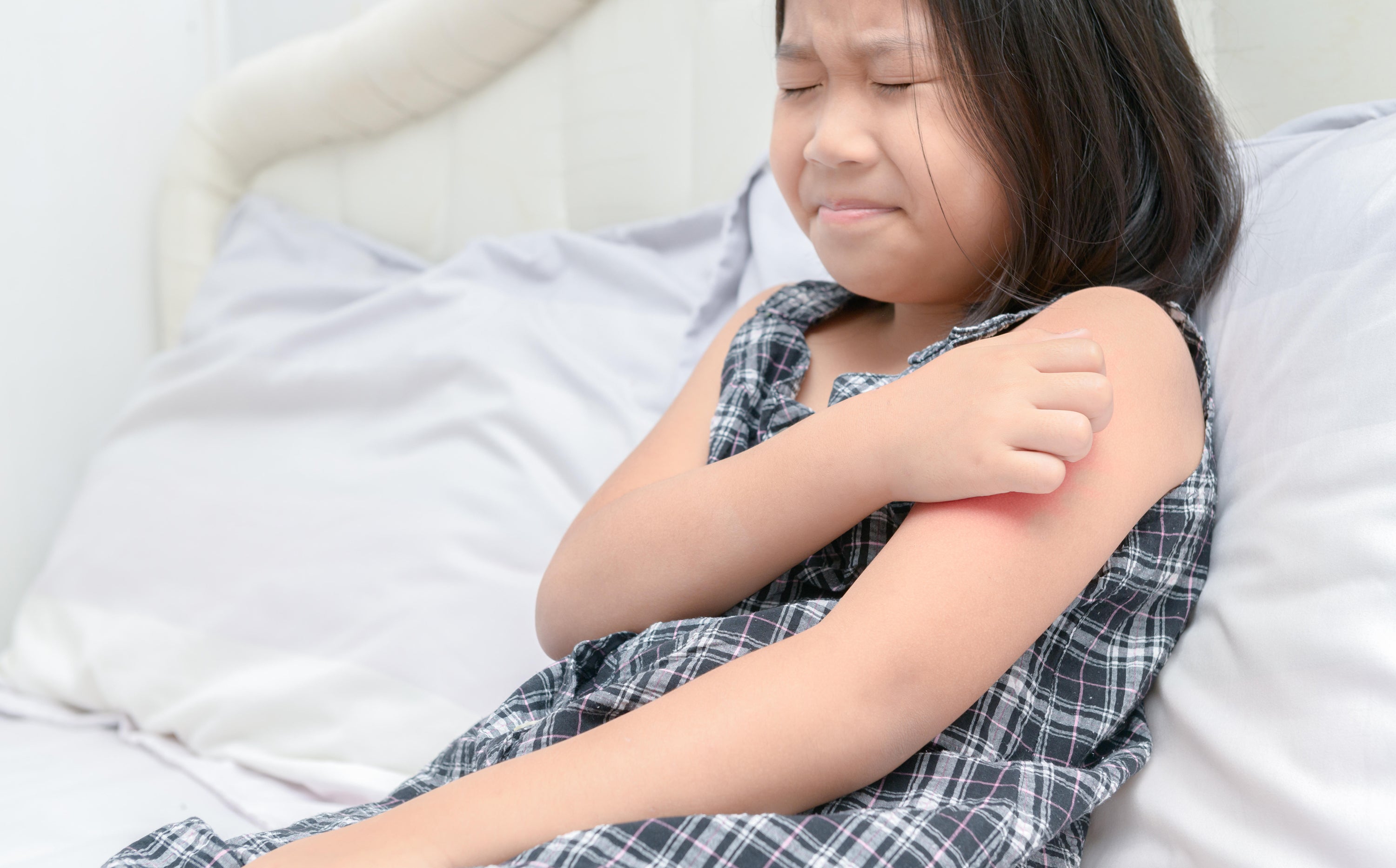
Children get rashes for all sorts of reasons. It’s well known that if your little one gets spots or a rash that doesn’t fade when you press against it with a glass, this can be a sign of meningitis and you should go to A&E or call 999 straight away.
Plus, if your child also develops a fever and seems suddenly unwell, it’s always best to get things checked fast.
But if the skin looks dry and scaly, you may be wondering: does my child have psoriasis?
We asked experts to talk through what parents need to know about the skin condition…
What is psoriasis?
“Psoriasis is an immune condition that affects the skin and sometimes also the joints and nails,” says Skin + Me dermatologist Dr Malvina Cunningham.
Dr Laura Proudfoot, consultant dermatologist at The Portland Hospital, explains: “The most common skin change seen in psoriasis is a red, raised patch of skin covered in silvery scale, called a ‘plaque’.
“In the most common presentation in both children and adults – chronic plaque psoriasis – these may be scattered on the arms, knees, body, hairline and scalp,” she adds. “Although plaques often appear a little less thick and scaly in children.”
What causes psoriasis?


While doctors understand a fair bit about the process by which psoriasis develops, the underlying cause of the condition isn’t entirely clear.
“Skin cells are generally produced and replaced every few weeks. However, psoriasis accelerates this process to every three to seven days,” says Proudfoot. “This build-up of skin cells results in the dry, scaly plaques.”
Dr Ahmed El Muntasar, GP and aesthetician aka The Aesthetics Doctor, says: “The exact cause of psoriasis isn’t perfectly understood but we know there is an immune component to it, and there is also family history associated.”
For those who develop psoriasis, other factors can also play a role, Proudfoot adds: “Some people also describe specific triggers for flare-ups, such as stress, certain medications, injury to the skin or after an unrelated infection.”
How common is psoriasis?

“Psoriasis is a common condition that is thought to affect between 2% and 3% of people and it can come on at any age,” says Cunningham.
A chronic condition that can vary in severity throughout life, it tends to affect older children more, Proudfoot explains: “Up to 40% of children with psoriasis will develop symptoms before the age of 16 years, with around 10% of children expected to [get] symptoms before age 10.”
How is psoriasis diagnosed?

“Diagnosis of psoriasis is usually visual, so you assess the patient and you see mainly where the plaques are,” says El Muntasar. “Because treatment of each of these locations is different.”
If you think your child might have psoriasis, it’s important to seek medical advice from a GP, who may refer them to a dermatologist.
“Psoriasis can generally be successfully diagnosed by its clinical appearance,” Proudfoot adds. “But in some cases, a biopsy of skin will be taken and sent to a laboratory for a more detailed analysis.”
What other rashes or skin conditions could be mistaken for psoriasis?

With so many different common rashes, psoriasis can also easily be mistaken for another condition.
“Sometimes people can mix up psoriasis with eczema, lichen planus, lupus (specifically discoid lupus) and fungal infections, as they can sometimes present with certain discoloration to the skin,” says El Muntasar.
Proudfoot agrees: “Psoriasis may be mistaken for eczema as the conditions can look similar because of the redness, scales and dry patches. Psoriasis localised to the scalp may be confused with dandruff or seborrheic dermatitis.”
That’s why it’s so important to see your GP and, if necessary, start on suitable treatment. “Topical treatment with creams and ointments can be very effective in controlling psoriasis,” adds Proudfoot. “And in those with more severe disease, light therapy, oral mediations and injectable biologic therapies may be prescribed under specialist care.”
Self-care and learning to identify your individual triggers can also help people manage flare-ups and symptoms.







